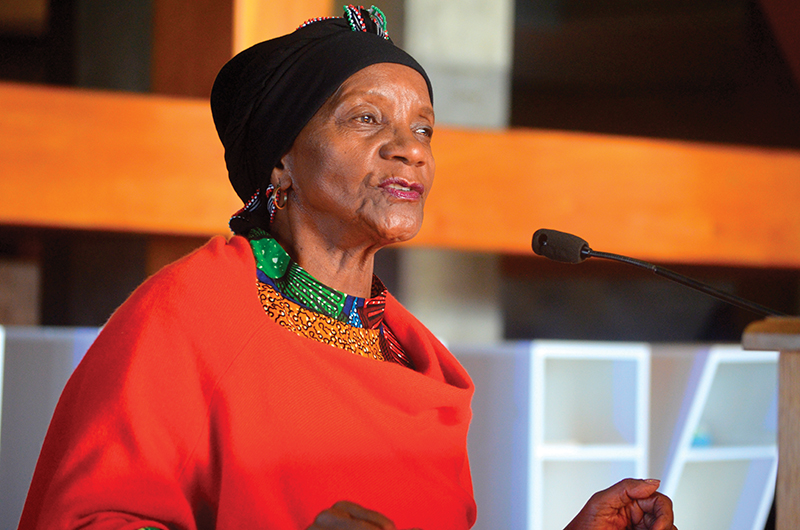The 6th annual Puku Children’s Festival celebrated the work of prolific children’s author Dr Nokugcina Mhlophe and lamented the lack of enthusiasm in children, parents and teachers in her impressive body of work that seeks to ensure that the country builds social intellect through a healthy reading culture.
Language and storytelling ambassadors applauded the growth of African literature, but added that it needs more urgent attention. In conversation with local school teachers, storytellers and literature & language students, accomplished author and motivational speaker, Dr Sindiwe Magona reminded them of the brain drain current facing South Africa.
Recent statistics paint a gloomy picture of children whose relationship with books is now optional. Research conducted in 2017 by a South African University indicated that eight out of 10 Grade 4 learners could read at that level–basically that they were functionally illiterate.
The standard of reading has been declining since 2011, leading to suspicions that teachers have stopped reading also.
“Real freedom is when everybody in this country is living a life that is worth having,” she insisted. “In 1994 we got political liberation, but we are not getting social transformation unless the children read, there is no education without reading. Transformation cannot rely on a wish or a prayer, you have to work for it and it begins with education. Education begins with reading,” she said.
She argues that the history embedded in story telling is how the older pass on African messages and wisdom to the next generation. Folklore helps people to understand the simplicity of the lives that were lived before in order to keep people grounded and actively practising Ubuntu.
Teachers were identified as the most critical role player in shifting this crises around. “You are the frontline, if you don’t take your job seriously, we suffer as a nation. Teachers must read, read for themselves and read for the children because that is how it becomes a culture, when it is ‘our collective’ thing,” she pleaded.
Parents were identified as problematic in their passive approach to the knowledge acquisition of their own children. The ideal, it is said, is for children to be reading long before they are at school going age. Magona shrugged without any shame at parents who reward their children with strictly electronic gifts in 2018, in light of the reading crises. For her, it is common sense to buy children books instead of satellite subscriptions.
Magona has, herself contributed a large volume of short story collections in at least six South African languages, complementing the four decades of an incredible body of work by Dr Nokugcina Mhlophe who writes and narrates in four languages.
“Reading takes you somewhere. We have 24 hours a day. Spend as many hours of them on your books, intentionally not haphazardly. Time management is an asset, it means you take your life seriously. This is one thing we cannot blame white people [for]. It is on us. Sixteen hours per day are available for you to shape your life, that of your children and the people around you…read, acquire knowledge, and define your education”.
The Puku Festival is an initiative by the Puku Children’s Foundation to introduce South African children to a wide range of published reading material and expose them to oral literature, particularly in African languages.
Elinor Sisulu, chairperson of the Foundation says, “We showcase and celebrate the work of storytellers, writers and artists so that children and their parents, teachers and caregivers will know that there is endless amounts of African literature available in their own languages.”


